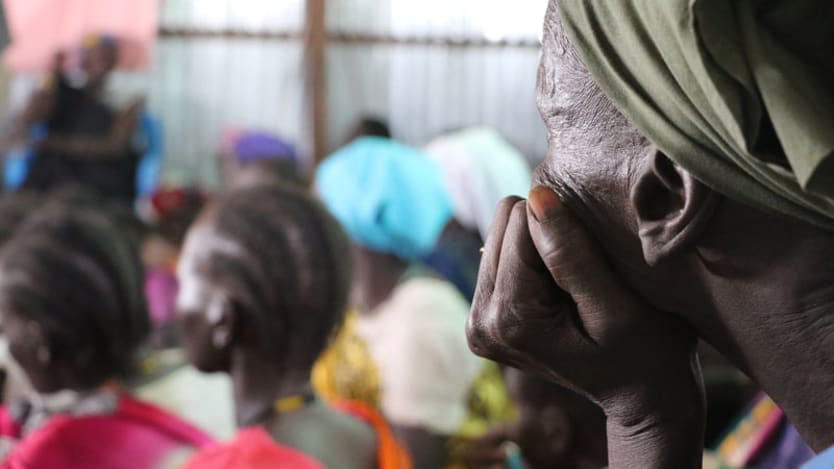Q&A: NORCAP's executive director on why 'we have to demystify' gender-based violence

NEW YORK — From time to time, sexual and gender-based violence is addressed at international meetings on humanitarian crises. But the issue continues to largely linger as an afterthought when it comes to humanitarian responses, said Benedicte Giæver, executive director at NORCAP, a Norwegian government-backed provider of expertise to humanitarian, development, and peacebuilding organizations.
While sexual and gender-based violence is common in emergency settings, less than 1% of funds for humanitarian assistance target prevention and protection work.
No answer: Kenya's gender-based violence hotline fails to connect
Devex attempted to call the toll-free hotline six days in a row. For the first five days, the calls could not be completed. This is part of our six-piece Failed Aid series, which investigates citizen reports on failed or unfinished aid projects in Africa.
A call for prioritization of gender-based violence was recently made at an international conference in Oslo, Norway, that brought in United Nations leaders including Mark Lowcock and representatives from 97 countries — and yielded nearly $40 million in pledges. It is not yet clear how much of that funding is new rather than previously announced, but the meeting is still an important step forward, Giæver said.
Devex spoke with Giæver about how to better address sexual and gender-based violence following the May 23-24 conference, which was co-hosted by Norway, Iraq, Somalia, the UAE, the U.N., and the International Committee of the Red Cross.
This conversation has been edited for length and clarity.
What were some of the major takeaways from this meeting?
For me, what really struck was there is so much more work that needs to be done, and we also need to work on the political side of things. Sexual and reproductive health is completely interconnected to sexual and gender-based violence. We have to be at the forefront of this now, so we need much more openness and we also need politicians to address this. Someone from the Somalia ministry said, “You do not know how difficult this is for us to talk about these things.” We have to demystify it because the more we can talk about it, the less difficult it will be and it will help those on the frontlines.
“Organizations that have this as a specialty speak up, but it is not only their responsibility.”
— Benedicte Giæver, executive director, NORCAPWhat came up clear at this conference was the idea that we need to bring this up in every event possible. We need to keep the focus on it because if we do not keep the focus on it we will lose it from the agenda again.
What are some of the major, persistent challenges you see when it comes to addressing sexual and gender-based violence in humanitarian settings?
We have to fight impunity because if we let this just happen, it will, again and again, and again. I have been working in countries of genocide and we have seen international tribunals built and can see different attempts but it is a question of the willingness to go in and work on these things.
Even in Norway, where we have come from so far, there is still a fight around this. In states where you have failing systems, it is extremely difficult to work on this issue, but we still have to do something about it. And this is where we sometimes give up a bit, and we cannot give up. We need to put in more resources on this.
Do you find that many organizations are not prioritizing the gender- and sexual-based violence in their humanitarian work, and if so, why do you think that is?
Organizations that have this as a speciality speak up, but it is not only their responsibility. All of us that work in the humanitarian sphere have this responsibility. All of us should talk about this. It should be an issue of how this is an essential breach of human rights. It is a protection issue, so we all need to be engaged on it.
For so many organizations this issue is often seen as an add-on. We need to ensure that, at a humanitarian level, sexual- and gender-based violence prevention and response is high on the agenda. We need to keep it at the center in order to get a different culture around it.
Where we see the need to do more work, we work with local NGOs and do capacity building on things like how to run a project and how to write a project proposal. Now we are bringing elements of protection work on gender-based violence and gender mainstreaming, which is another approach in terms of ensuring organizations in the field have a thorough understanding around these themes. Of course, they can bring in their context, in terms of cultural understanding, which means we can get better programming at the end of the day.
Search for articles
Most Read
- 1
- 2
- 3
- 4
- 5








